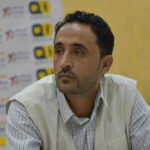Feeling Forgotten: Yemeni Refugees, Host Countries, and the UNHCR
Since the outbreak of the war, Yemenis have sought to escape the scourges of violence, economic collapse, and political instability. Some have made arduous journeys to Djibouti, Somalia, and Somaliland[1] on small fishing boats to reach safety,[2] and now reside in their respective capitals.[3] Others have sought refuge in Ethiopia, where they are mostly found in remote areas on the outskirts of Addis Ababa.[4] A number have been able to reach Jordan and Egypt, most of whom now live around Al-Ju……










